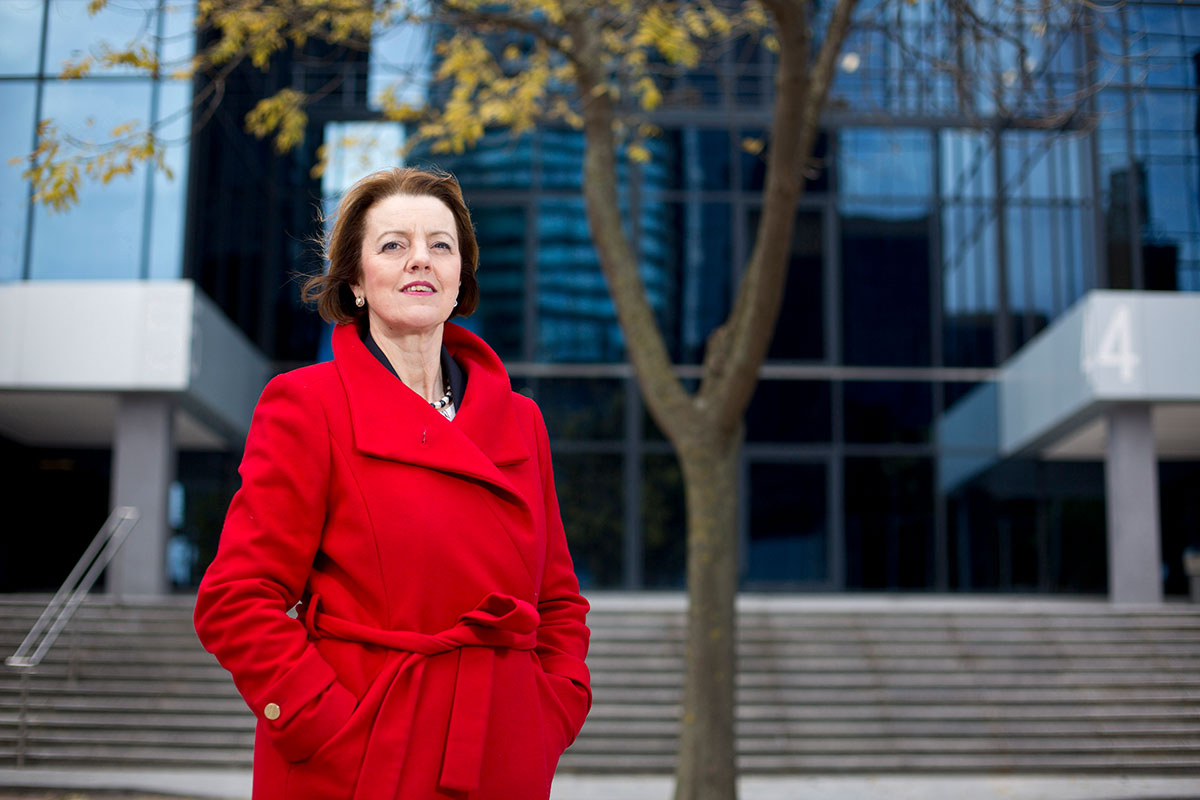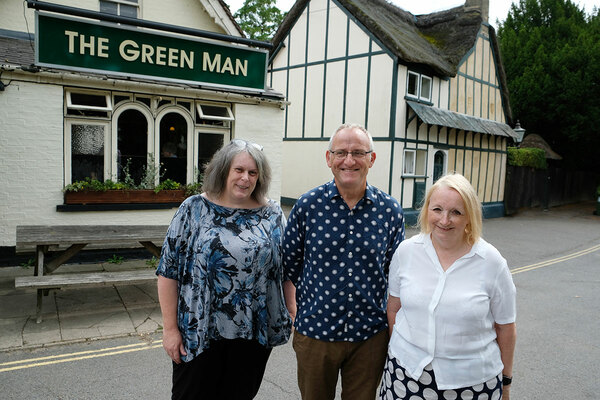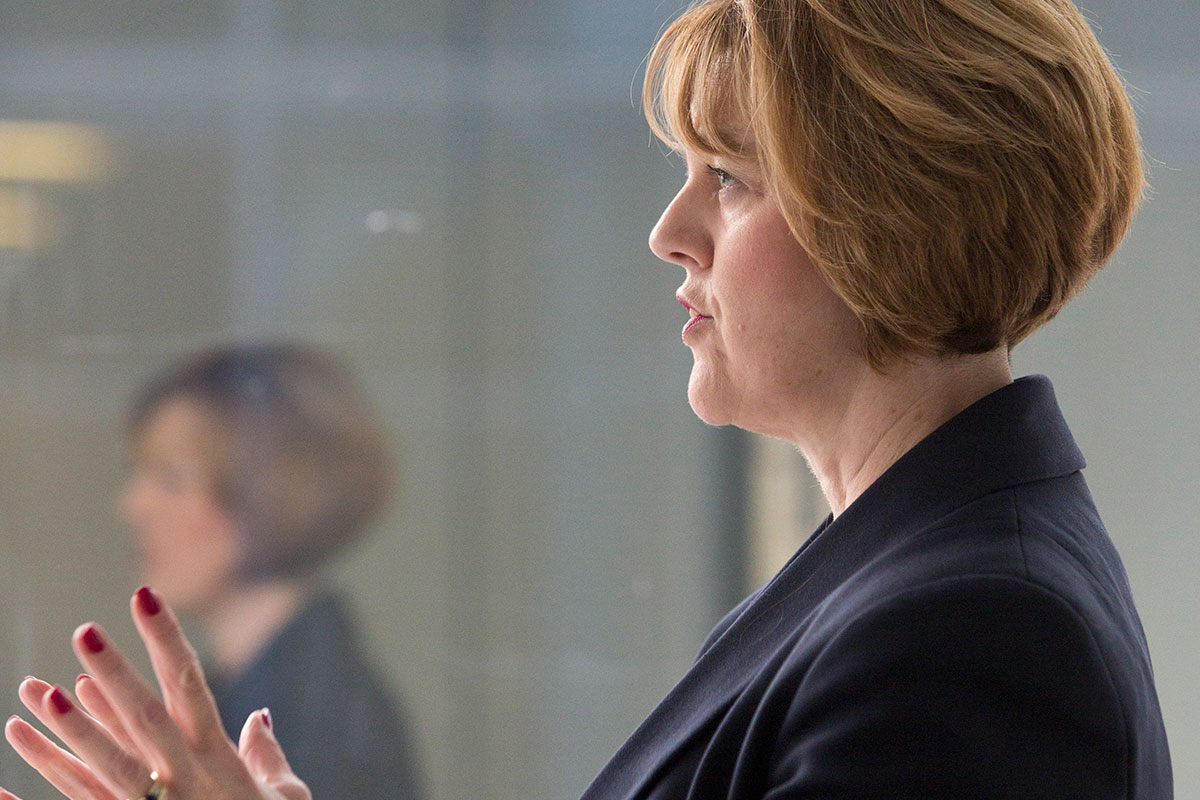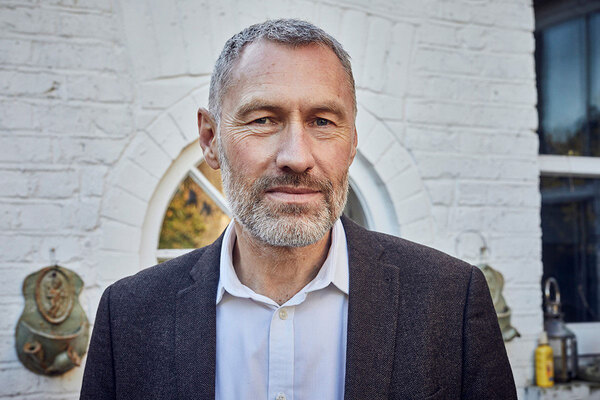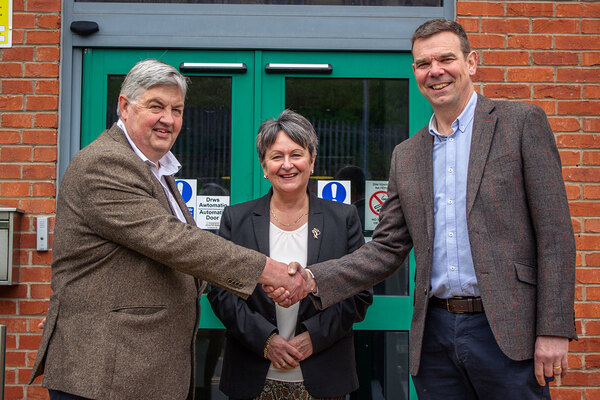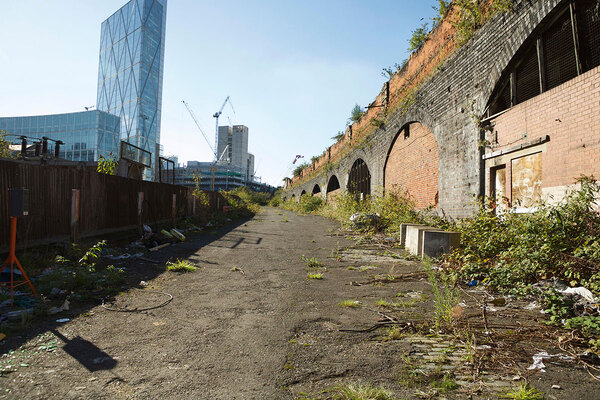You are viewing 1 of your 1 free articles
Building her platform: meet Elizabeth Froude
Elizabeth Froude took over as chief executive at one of the biggest developers in the sector – Platform Housing Group – last summer. Lucie Heath finds out about how she plans to carry on building for social rent. Photography by Belinda Lawley
When Elizabeth Froude entered the housing sector in 2005 it was only supposed to be on a 13-week contract.
She had spent the first 20 years of her career working for what she describes as “lots of big shiny FTSE names” and was being hired to assist with a merger – a six-way tie-up that would go on to become Radian.
“Like many people from outside of the sector, I’d assumed it would be just like working for a council,” recalls Ms Froude on a visit to Inside Housing’s office. “But it was nothing like working for a local authority… I was really impressed at how business-like they were.”
A job at a housing association was also different to the corporate world Ms Froude had just left. After working on a regeneration projection in Slough – “you were really at the coalface with the residents” – she fell in love with the sector.
“In the Midlands, we’re in the middle, just cracking on with doing it”
“I loved it and just thought this feels like where I should have always been,” she says.
Ms Froude ended up staying at Radian for six-and-a-half years, before going on to work at Genesis – first as its finance director and then as deputy chief executive.
In 2018, she announced she was leaving the newly formed Notting Hill Genesis to look for new opportunities.
Eight months later, in July last year, she was appointed as chief executive of Platform Housing Group.
A few months into her new role, Inside Housing catches up with Ms Froude to discuss her plans for Platform, an association that has quickly become one of the biggest developers in the sector. The 45,000-home housing association was formed in 2018, from the merger of Waterloo Housing and Fortis Living.
Ms Froude was born and raised in Scotland, but being in England for 30 years has changed her accent.
After decades of working in London and the South, Ms Froude’s new role takes her to the Midlands, where she has begun forming relationships with a whole new set of stakeholders, including local politicians and developers.
The chief executive wants Platform to “help the Midlands have more visibility, more presence and more pull on the political agenda and funding”.
“When my sales team listen to messaging about the death knell of shared ownership or something, they are sitting there thinking, ‘That’s not applying to us’”
“I don’t need to tell you how many articles come out in the housing press about the North versus the South,” she says. “In the Midlands, we’re in the middle, just cracking on with doing it,” she says.
Leaving the London bubble has opened Ms Froude’s eyes to the differences in how the housing sector and its challenges present themselves in different parts of the country.
“In the Midlands, at the moment we’re not really seeing [a] massive slowdown, we’re not really concerned,” she replies in response to Inside Housing’s question about the widely reported sales market problems facing the sector.
“When my sales team go to sector conferences and listen to messaging about the death knell of shared ownership or something, they are sitting there thinking, ‘That’s not applying to us.’”
Ms Froude believes this is because Platform is building for a different market. “We’re building for people who live there, we don’t build anything that we think we need to sell to an investor and so that gives us more steady continuity, more resilience to market trends,” she explains.
“It’s about being opportunistic about what we do”
Another thing that sets Platform apart is its commitment to social housing. In June, Inside Housing’s Biggest Builders survey revealed that Platform built more social homes than any other housing association in England last year – a total of 458.
Social rent accounted for just under a third of the homes the housing association completed in 2018/19, while zero homes were completed for market sale.
When asked how Platform managed it, Ms Froude says the organisation’s “strong sense of local allegiance” was key.
“It’s building for a resident domestic market that is local to it. It’s got good financial capacity but... it’s not interested in buying a tower block and selling a third of it to a commercial investor. It’s saying, ‘I’m building houses for people who live in this community.’”
Some may be wondering if this is all about to change now that Ms Froude is in charge. In 2015, while she worked at Genesis, the organisation made it to the pages of the national press when its chief executive said it would no longer build homes for social rent.
Ms Froude sighs audibly when the subject comes up and says: “They didn’t really say that actually. What we were saying was if it wasn’t on the government’s agenda then they couldn’t expect us to do it all out of our pockets.”
While this is her interpretation of the comment (“We really think that the affordable rented element is gone – we should be looking more at a 50/50 split between intermediate tenures and the market”), she makes it clear that social rent still makes up a third of Platform’s pipeline. But with rental housing slipping down the agenda again, is this going to be sustained?
“I think that [Platform] could leverage some more commercial models and do some more units, and I think that’s what I hope to bring to the organisation,” she explains.
“The future for development at Platform is about knowing what that capacity is that we’ve got over and above what we are doing. If we can do what we already do without stretching ourselves, what’s that extra bit of money that we’ve got in our pocket?
“It’s about being opportunistic about what we do with that and that might be about partnerships with local authorities or builders or other housing associations. It might be about buying stock portfolios that come out of other social landlords. It might be about trying new business streams or a bit more investment in retirement living.”
Could it also mean further mergers are on the horizon for an organisation that was formed in 2018 following a merger between Waterloo Housing and Fortis Living?
Biography
Elizabeth Froude originates from Scotland, where she worked in accountancy before moving to London.
She spent 20 years working in a variety of sectors ranging from film and retail, to restaurants and IT. Her work took her round Europe and America, often working in merger and change and process improvement roles for large FTSE organisations.
She came into housing on a short-term contract to support the merger which formed Radian Group and describes her move into the sector as the place she was meant to be. She has worked in housing associations of different sizes and types for the past 15 years, spanning the South Coast, London and the Home Counties, where she worked for Genesis and helped to deliver the merger with Notting Hill.
She is now working as chief executive of Platform Housing Group, which operates coast to coast across the Midlands, where she is leading the delivery of the new amalgamated organisation.
Long term, Ms Froude certainly seems keen on the idea. “It’s not something we’re rushing out to do today, but it’s definitely something we’ll consider in the future.
“I think, personally, Platform is an organisation that would be a really great place to be for organisations smaller than us because we haven’t lost that real core social landlord sense of purpose and we’ve got this great financial platform upon which to build.
“I think we could double the development programme of many small organisations in a heartbeat and it would make no financial impact on our organisation.”
Ms Froude would also like to bring other parties into Platform’s strategic partnership with Homes England, whether that would be other landlords, developers or councils.
But with an evident eye for expansion, is it possible for Platform to maintain its social heart?
Ms Froude believes this is a false dichotomy and says: “Platform is a great example of being able to be a big developer and good-quality landlord and I think you can’t make them into two separate activities – you have to have one hand washing the other.”
Given her background in the commercial sector, it is perhaps unsurprising that Ms Froude is unfazed by the rise of for-profit housing associations and the flooding of private finance in the social housing sector.
“I’m a bit agnostic about it,” she says. “I understand the sentiment that they’re just in it for the money, but I don’t think they’ve tried to pretend that they’re anything else.”
“I think that they need to be seen as different to us, because I don’t think an investor building a social housing portfolio has the same motivational drive or real long-term view of social housing as we do.”
Yet, ultimately, Ms Froude is a pragmatist and is sanguine about the various ‘crises’ hitting the sector.
“I think everything is cyclical,” she responds when asked if now is a particularly difficult time in the sector. “We had a massive recession at the end of the ’90s, we had a massive recession around 2009 because of the Lehman thing, and 10 years later, here we go, we’ve got another recession because of Brexit.
“At the end of the day, if the sector was to think as one and say, ‘We’re all just here to build more houses,’ then it kind of doesn’t matter how we do it. As long as we all keep our eye on the end goal, we probably could just build an awful lot more.”
Sign up for our monthly Housing Moves newsletter
Already have an account? Click here to manage your newsletters
